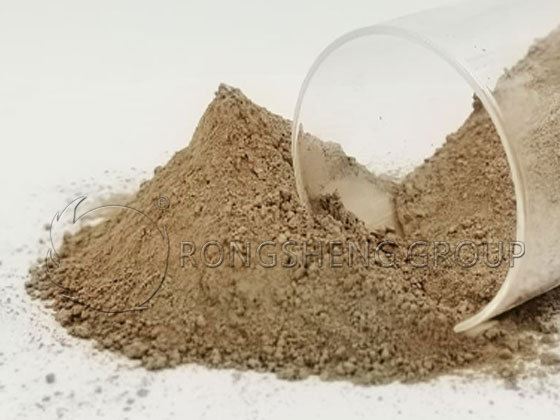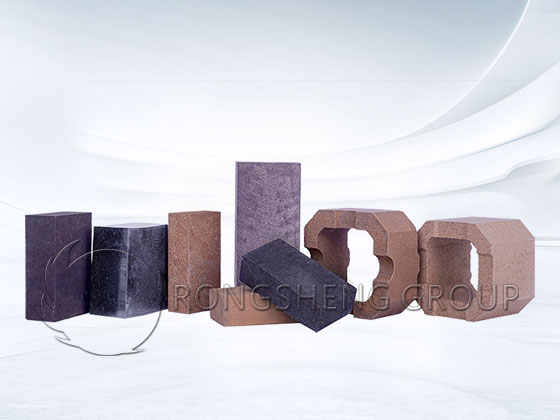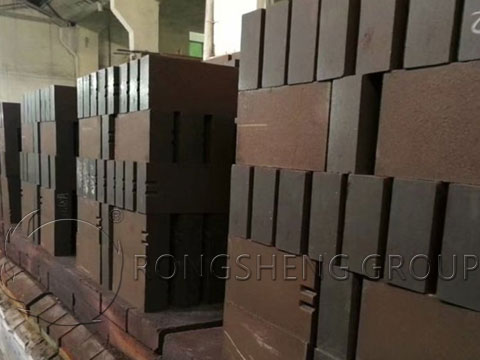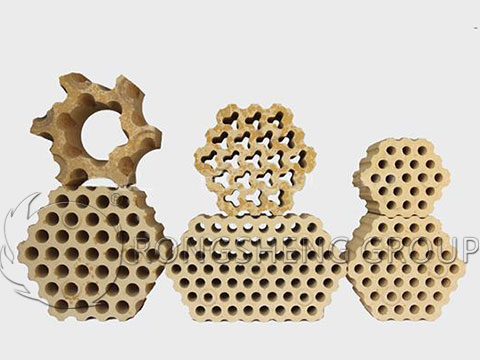Water Glass Combined Magnesium Monolithic Refractory Materials
In the refractory industry, water glass is mainly used to build fire mortar for magnesia refractory materials or medium and low-grade aluminum-silica refractory materials. Among them, the method of making magnesium iron refractory mortar for magnesia refractories is as follows.

- Raw materials. Magnesia fines <1mm; 15%~20% magnesia fine powder remaining after 0.088mm sieve. <1mm iron ore or iron scale. Iron scale is the skin peeled off from rolling steel billet, so it is named because it resembles scales. Water glass with SiO2/Na2O molar ratio 2.2~2.9 and relative density 1.41~1.44.
- Proportion. Magnesia fines: Magnesia fines: Iron ore fines = 1:1:1. Dilute the water glass to a relative density of 1.30~1.32. The dosage accounts for about 25% to 30% of the dry ingredients.
- The mixed cement should have a masonry time of 30 minutes and a hardening time of 4 to 8 hours. Compressive strength of 5~10MPa after drying.
- The hardening of cement is affected by temperature. If it hardens too quickly, water glass can be diluted. If the hardening is too slow, 0.5% ordinary cement can be used to accelerate hardening.
- If the adhesiveness of the mortar is not strong, you can increase the proportion of fine powder as appropriate. If the refractory mortar joints are very wide, the amount or particle size of magnesia fine particles can be increased.
- The refractory mortar can be used as needed. Do not mix too much at one time. The newly solidified cement can be diluted with water glass, or it can be poured back immediately and mixed with new materials before use.

Characteristics of Magnesia Mortar
As we all know, refractory mortar is an accessory product used in building refractory bricks and furnace walls. It mainly includes four types: fireclay refractory mortar, high alumina refractory mortar, silica refractory mud, and magnesia refractory mortar. There is no doubt that magnesia mortar inherits the advantages and disadvantages of magnesia refractory materials and is used to build magnesia refractory bricks.
Advantages and Disadvantages of Magnesium Refractories
The melting point of MgO is as high as 2800°C, and the refractoriness of magnesia bricks is generally very high, up to more than 2000°C. Therefore, magnesia bricks have good high-temperature resistance, good stability in high-temperature vacuum, and strong resistance to alkaline slag. However, magnesia bricks have poor resistance to sulfate erosion, poor thermal shock stability, and are prone to hydration. In addition to traditional magnesia bricks, magnesia refractory materials also include forsterite refractory materials, magnesia-aluminum spinel refractory materials, magnesia-chromium refractory materials, white jade refractory materials, etc.
Advantages of Magnesia Mortar
- Good plasticity and convenient construction.
- High bonding strength and strong corrosion resistance.
- High refractoriness, up to 1650℃±50℃.
- Good resistance to slag invasion.
- Good thermal peelability.
Disadvantages of Magnesia Mortar
Because magnesia refractory materials are easy to hydrate. At present, most of them have switched to the dry laying method to build magnesia refractory materials. However, for irregular parts, it is still necessary to use magnesia refractory mortar to adjust joints and pad bricks to alleviate stress concentration and increase the service life of the kiln lining.
Applications of Magnesia Refractory Mortar
Magnesia refractory mud is mainly used as a mortar filler for magnesia bricks, magnesia-alumina bricks, magnesia-chrome bricks, and other magnesia refractory bricks, and as a protective coating for magnesia masonry.
Buy high-quality magnesia refractory materials, magnesia bricks, magnesia chrome bricks, directly bonded magnesia chrome bricks, magnesia mortar, magnesia castables, and other unshaped refractory materials. Please choose Rongsheng refractory manufacturer. Rongsheng Manufacturer is a powerful manufacturer and seller of refractory materials. Our refractory products have been sold to more than 100 countries and regions around the world. The product quality is reliable, the delivery speed is fast, the customer reputation is good, and the service is guaranteed. Contact us for a free quote and solution.


